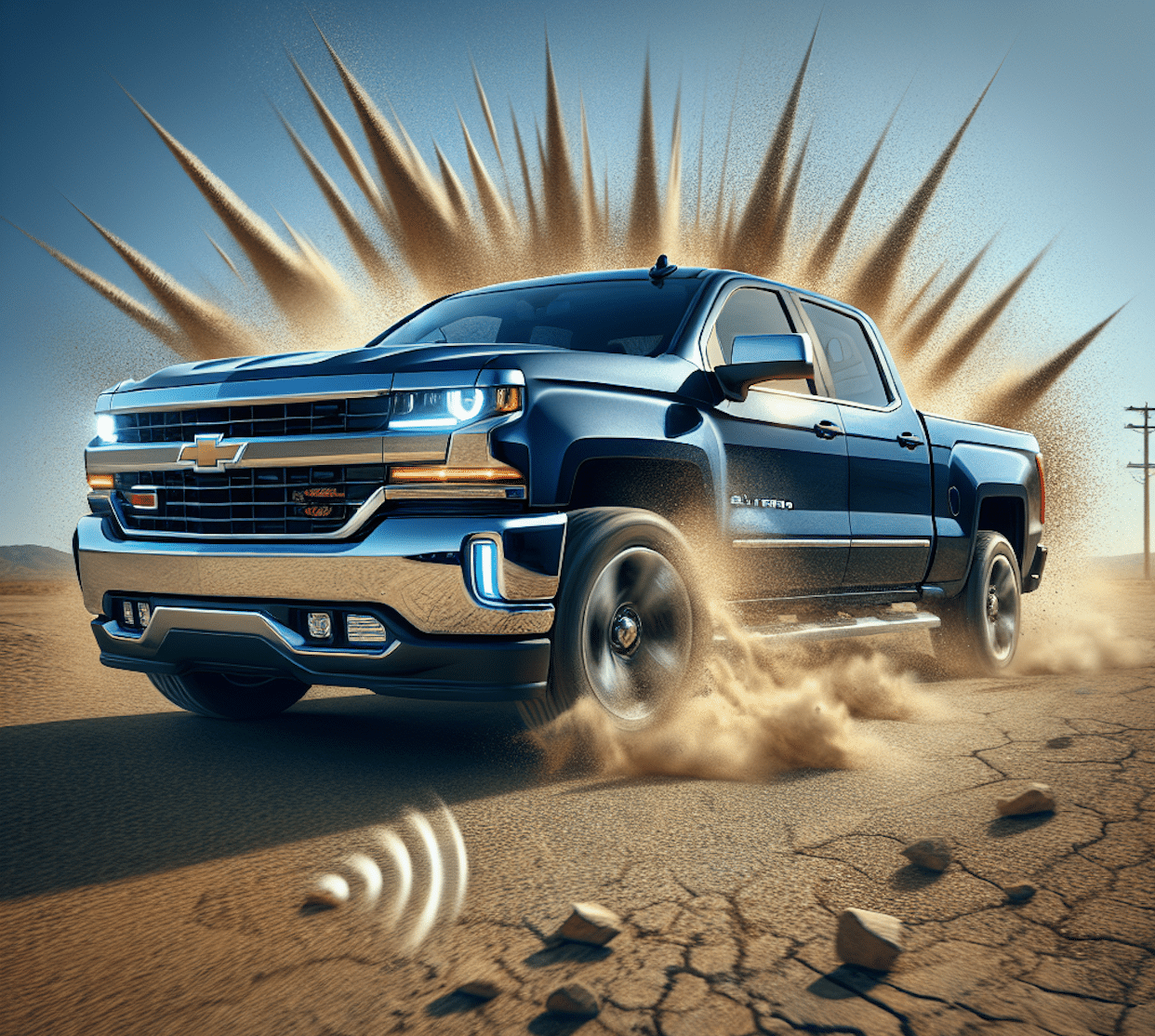If you’re experiencing a rattling noise when accelerating in your Chevy Silverado, that can be disconcerting and frustrating. In fact, this noise may indicate a minor issue that requires a simple fix or a more significant problem that necessitates professional attention. So, the key is to diagnose the issue promptly to ensure your truck operates smoothly and reliably. Below we explore the common causes of rattling noises in the Chevy Silverado and provide guidance on how to address them.
Identifying the rattling noise
it’s essential to identify when and how the rattling noise occurs. Does it happen only when accelerating, or is it present at idle as well? Does it get louder with speed or disappear after a certain point? Pinpointing the circumstances surrounding the noise will help narrow down the potential causes.
Common Causes of Rattling Noise When Accelerating
The following are the most common causes of the problem. So, ty to identify yours and understand how that can impact your driving experience. Then you can diagnose and see from where the noise is coming and what you need to do later.
Loose or damaged exhaust components
One of the most frequent culprits behind a rattling noise is the truck’s exhaust system. Over time, the exhaust components can become loose or suffer damage due to road debris, corrosion, or wear and tear. Also, a loose heat shield, a damaged muffler, or a broken exhaust hanger can all lead to rattling noises when the truck is under load, especially during acceleration.
Solution:
Inspect the exhaust system from the manifold to the tailpipe for loose or damaged parts. Tighten any loose components and replace damaged parts. Sometimes, adding additional clamps or welding may be necessary to secure the exhaust system properly.
Engine detonation (Knock)
The engine knock or detonation is a type of rattling noise that occurs when fuel burns unevenly in the engine’s cylinders. So, this issue can arise from using low-octane fuel, carbon buildup, or problems with the ignition system.
Solution:
Switch to a higher octane fuel if you’ve been using a lower grade. Additionally, a professional engine cleaning or decarbonizing might resolve the problem. If the issue persists, have the ignition timing and spark plugs checked and replaced if necessary.
Worn or faulty engine components
Components within the engine, such as bearings, pulleys, or valves, can produce a rattling noise if they are worn or not functioning correctly. If this is your car you bought from someone else, then, probably, the previous owner had never changed worn pulleys or bearings, for example. That’s why it’s crucial to ask the seller about any noises or maintenance history. That way, you can identify issues before they happen, was you can search and find the average mileage to change components.
Solution:
An experienced mechanic should perform a comprehensive engine check. Replacing worn bearings, tightening loose pulleys, or adjusting valve clearances may be required. That way, addressing these components promptly can prevent more severe engine damage.
Transmission issues
The transmission may also be a source of rattling noise during acceleration. That’s because loose torque converters, broken gears, or problems with the transmission fluid can all cause rattling sounds.
Solution:
Check the transmission fluid level and quality. A fluid change or flush might resolve the issue if the fluid is dirty or at a low level. However, if the noise persists, the transmission should be inspected by a specialist for any signs of mechanical failure.
Loose or worn suspension components
Rattling noises can stem from loose or worn suspension components. So, ball joints, tie rod ends, or bushings can rattle when they become loose or deteriorate.
Solution:
Inspect the suspension components for any looseness or wear. Replacing worn parts and securing any loose elements should eliminate the rattling noise related to the suspension system.
Drivetrain issues
The drivetrain, including the driveshaft and CV joints, may produce a rattling noise if not properly lubricated or if components are failing.
Solution:
Lubricate the drivetrain components, inspect for wear, and replace parts as necessary. CV joints, in particular, should be checked for damage to the boots and replaced if they are cracked or leaking grease.
Diagnosing the issue
Diagnosing a rattling noise can be complex and might require a mechanic’s expertise. But the are many ways to do that yourself. Now, here are a few steps you can take to help diagnose the issue:
- Listen closely to the noise: Is it coming from the front or back of the truck? Does it change with vehicle speed or engine RPM?
- Visual inspection: Check for any loose parts or visible damage under the vehicle and within the engine compartment.
- Test drive: If safe to do so, try to reproduce the noise during a test drive while paying attention to when and how it occurs.
Preventative measures
To prevent rattling noises and other vehicle issues:
- Regular maintenance: Stick to the recommended maintenance schedule for your Chevy Silverado, which includes checks on the suspension, exhaust, and engine components.
- Quality parts: Use quality parts and fluids that meet or exceed the manufacturer’s specifications.
- Professional inspections: Have periodic inspections by a certified mechanic who can identify and fix potential problems before they become significant issues.
Conclusion
A rattling noise when accelerating in your Chevy Silverado can stem from various sources, including the exhaust system, engine, transmission, suspension, or drivetrain. While some solutions are straightforward, others require a more in-depth approach. So, always consult with a professional mechanic if you’re unsure of the problem or its solution.
Routine maintenance and timely repairs will keep your Silverado running smoothly and help avoid the inconvenience and costs associated with more serious mechanical issues. With a proactive approach to vehicle care, you’ll minimize the chances of encountering that unsettling rattling noise and ensure your Chevy Silverado is in top condition for the road ahead.
